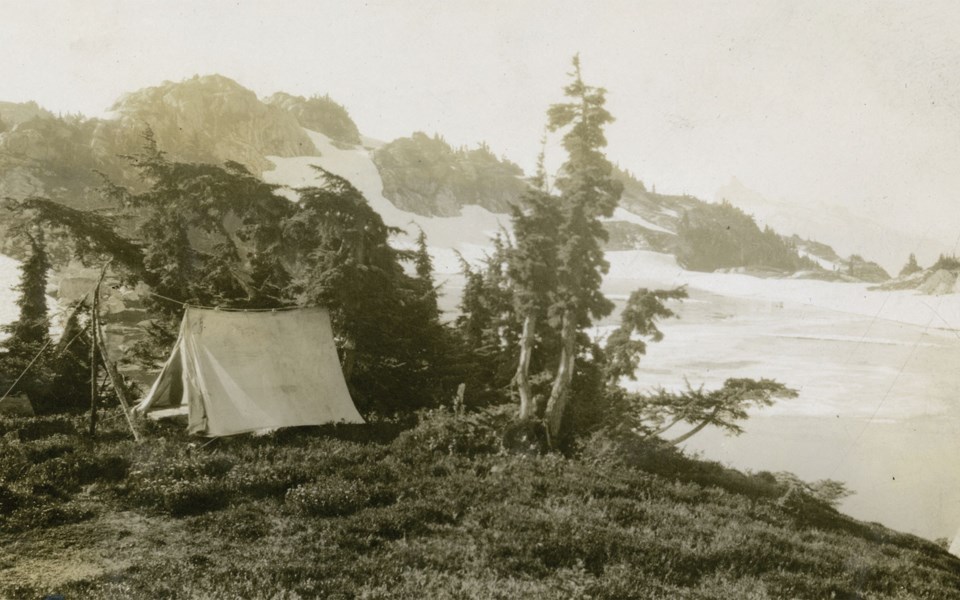A few weeks ago, we took a look at Bill Bailiff and his column in the Community Weekly Sunset, the newsletter of the Alta Lake Community Club, which featured information about the history and environment of the area, alongside personal anecdotes. With summer approaching and the thoughts of many turning to camping, we thought we'd share another topic from Bailiff's articles: practical advice from "Camping Out with Ol' Bill."
In April and May of 1958, Bailiff wrote a series of articles about camping in the area, including suggestions on where to camp, what to bring, why one should go camping or hiking, and how to behave while out in the wilderness. While some of his advice still holds true today, his suggested campgrounds for the area look a little different today.
In 1958, a getaway from the crowds at Alta Lake could be as near as a trip to Green Lake ("lots of good camping ground and sometimes good fishing"), Twin Lakes ("good safe place to camp, a good hike but no fish"), or Lost Lake ("ideal, good fishing, good camping site"). Today, just over 60 years later, very few spots around any of these lakes would be considered a campsite in the wilderness.
Some of Bailiff's more lasting advice comes from an article outlining what not to do while camping:
• Don't go sliding down a steep snowbank as you may not be able to stop and the rocks below are harder and sharper than your bones.
• If on a glacier, don't ever attempt to cross on a snowbridge over a crevice as these are liable to give way anytime so leave that to the experienced mountaineers who rope themselves.
• Don't step on a wet greasy log with ordinary shoes on as you may go down hard enough to receive a cracked rib or two.
• If off the trail and lost, don't panic.
• Don't be a litterbug around a campsite, clean it up as someone else might be along to use it.
• Don't stay too long on a snowfield without dark glasses on as you may get a terrific headache from partial snowblindness.
• Don't go killing wildlife needlessly... Much better to try a shot with your camera.
• Don't be an old grouch round the camp or on the trail as this has a bad morale effect on others. If the going is tough, take it with a smile and joke about it as it makes it easier and pleasanter.
The most pointed of Bailiff's advice is reserved for campfires, as forest fires were a concern in 1958, much as they are today. Along with suggestions of where to make a campfire (not next to a tree) and instructions for reporting an uncontrolled fire (in 1958, not so simple as making a phone call), he reminded those who would go camping that they have a responsibility to the environment. As he put it, "Don't take the attitude it's none of my business because it is your business. You're enjoying the cool green forest full of life and breathing in the sweet scented life-giving oxygen."
Camping in the area looks different than it did in the days of "Ol' Bill" (tents now tend towards lightweight and waterproof), but his ideas of safety and stewardship should remain priorities for those heading out this summer.




